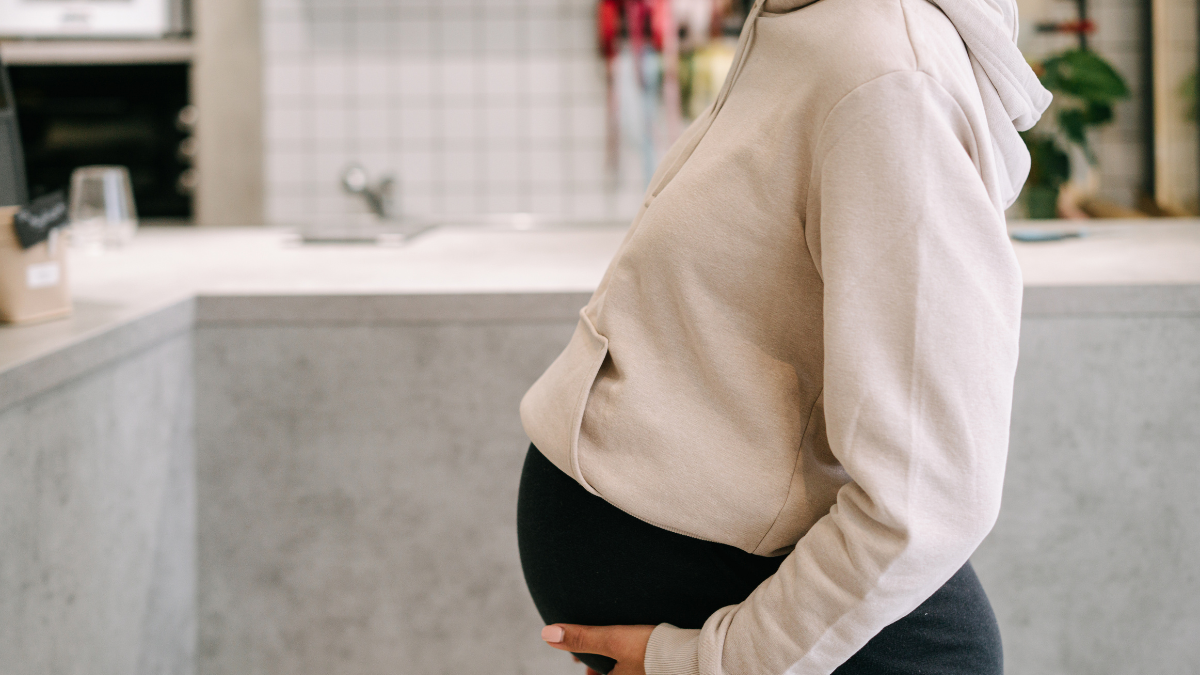
Hurray, you’ve started to feeling those flutters – or maybe even little kicks – made by your growing baby as they move about in your womb! And you may have heard or read about keeping track of how many of these movements you’re feeling. But why is this important? How many movements should you expect to feel each day? And does that change as your due date gets closer?
Each baby will develop their own individual pattern and some are just more active than others, there’s no ‘correct’ frequency, as it’s different for every woman. But your baby will develop a ‘routine’ and it’s good to get to know what’s normal for your baby.
No, this is something pregnant women used to be told, but now because it’s known how very different one baby’s movements can be from another’s – some babies may move 4 times an hour, for example, while others move 100 times an hour – this practice has been discontinued.
It’s also really hard to compare what pregnant women call a baby movement: it could really vary, with some women ‘counting’ every tiny flutter and others maybe not noticing much beyond the really big kicks.
So, now it’s all about staying in tune with your baby’s regular movements. The idea is to get to know your baby’s kicking habits and become aware of how active your baby is – so that, if anything changes away from that norm, you can ask your doctor or midwife to check it out.
OK, so we know that every baby is different but, despite that there are certain common patterns to baby movements that happen during your 2nd and 3rd trimester. For example, you’ll probably notice that your baby’s movements will increase until you’re 32 weeks pregnant and then, from then on, keep pretty much to the same frequency until you give birth.
Most pregnant women will have felt some flutterings by the 24th week of pregnancy. It’s worth knowing that first-time moms-to-be tend to feel movements later on in pregnancy – so don’t be disheartened by the mom who’s having her 3rd and has been feeling movements since week 16.
Also, if you have an anterior placenta (where your baby’s placenta is attached to the front – tummy-side – wall of your uterus, rather than the back – spine-side – or top or side), you may feel fluttering a few weeks later than the average pregnant woman does, because the placenta is acting as a kind of cushion between your baby and belly, so making movements harder to feel.
If you haven’t felt any movements at all by 25 weeks, though, do contact your doctor or midwife.
Babies can be active throughout the day and night, but they won’t be continuously active so don’t be worried if your baby has a rest for while. Babies don’t always move, especially when they are sleeping.
Babies can sleep for anything from 20 minutes to 40 minutes, and sometimes they can even have a longer nap of anything up to 90 minutes.
You might also find that your baby’s very active at night and in the morning, but you don’t feel a huge amount during the course of the day. This is very normal as babies become very used to noise and your activity outside the womb and they often move more when you stop.
Think about how we walk around rocking a baby to sleep for comfort. It’s the same thing when your baby’s in your uterus. So when you sit down and rest, your baby might wake up as the rocking stops.
Your partner will often be able to feel your baby a few weeks after you feel the first kicks. Again, every pregnancy is different.
You can probably second-guess half of the things that will make a baby move before you even experience it, such as:
Some things that are likely to make your baby move less include:
Sometimes, we’re so busy, we’re simply not concentrating on our baby and miss regular movements. If you’re able to, take some quiet time to relax, and reconnect with your baby, focusing on feeling her move. A glass of ice-cold water will often get her moving – it’s thought that your baby can feel the change in temperature and will try to move away from it. If you’re at all worried, trust your instincts and call your doctor or midwife. They can have a listen and monitor you properly to put your mind at rest.
If you’re concerned that your baby’s moving less than previously, you should contact your doctor or midwife who’ll advise you to have your baby’s heartbeat monitored to check everything’s OK. In most cases, your baby will be moving but you’re just not aware of it. Alternatively your baby might have altered positions, meaning you don’t feel pushes or turning in such a defined way.
Towards the end of your pregnancy, your baby has less room in which to do huge kicks or shoves, but you should still feel the same amount of moving, even it’s slightly less strong, or feels different. Sometimes a significant reduction in movements can show that your baby is becoming unhappy in the womb, so it’s always important that you speak to a doctor or midwife, who can arrange for you to be seen quickly.
© 2023 All rights reserved Baby & Toddler - part of parent promotions